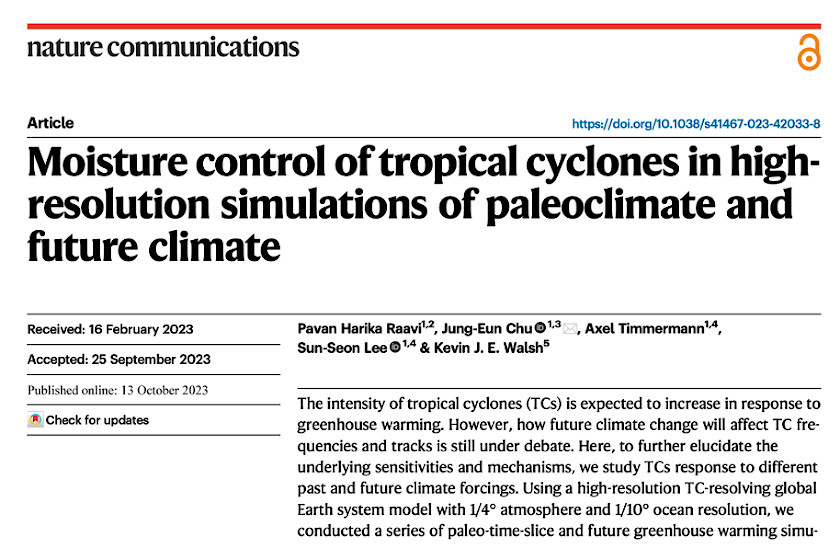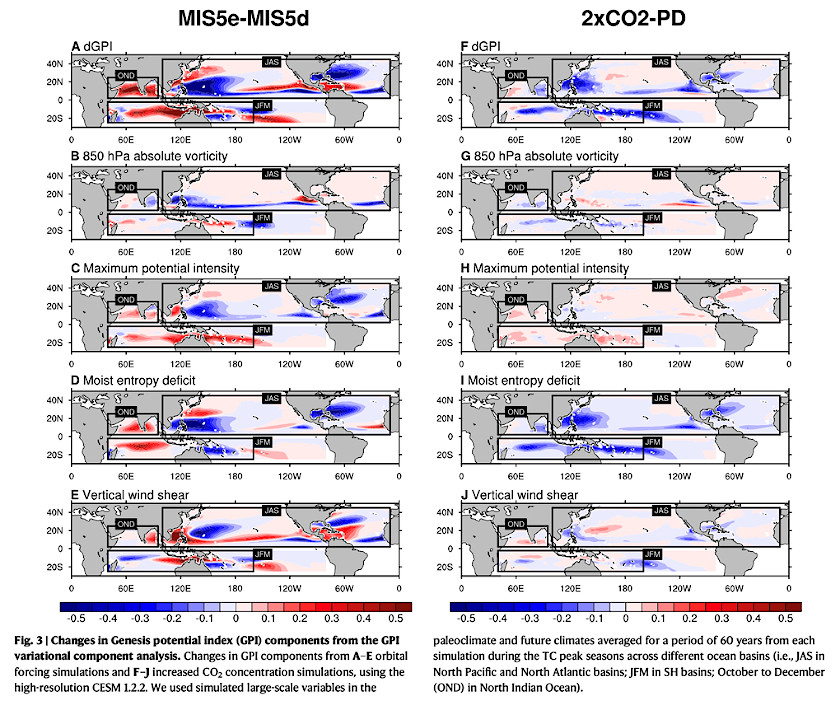Discovering the key factor influencing tropical cyclones in both past and future climates
A groundbreaking study utilizing advanced high-resolution supercomputer simulations has been published in the latest issue of Nature Communications. This research, titled “Moisture control of tropical cyclones in high-resolution simulations of paleoclimate and future climate,” sheds light on the global frequency of tropical cyclones. Prof. Jung-Eun CHU, a corresponding author of the paper, emphasizes the study’s findings, which establish a strong coherence between theory, empirical models, and explicit simulations of tropical cyclones.

Tropical cyclones, known for their devastating impact on lives and economies worldwide, remain a major concern in the context of global warming.
This study aims to unravel the mysteries surrounding the changes in tropical cyclone properties, particularly frequency and intensity. The main findings of the study indicate that moisture-related factors play a crucial role in regulating the frequency of tropical cyclones under both orbital and greenhouse gas forcings, while the tropical cyclone intensity responses differ between hemispheres.
Prof. CHU asserts, “The study of past climate establishes a baseline for current and future climate conditions. By combining past climate data and future projections, scientists can identify the natural variability of the climate system and distinguish it from anthropogenic influences.” The research allows us to gain valuable insights into the potential impacts of future climate change.
